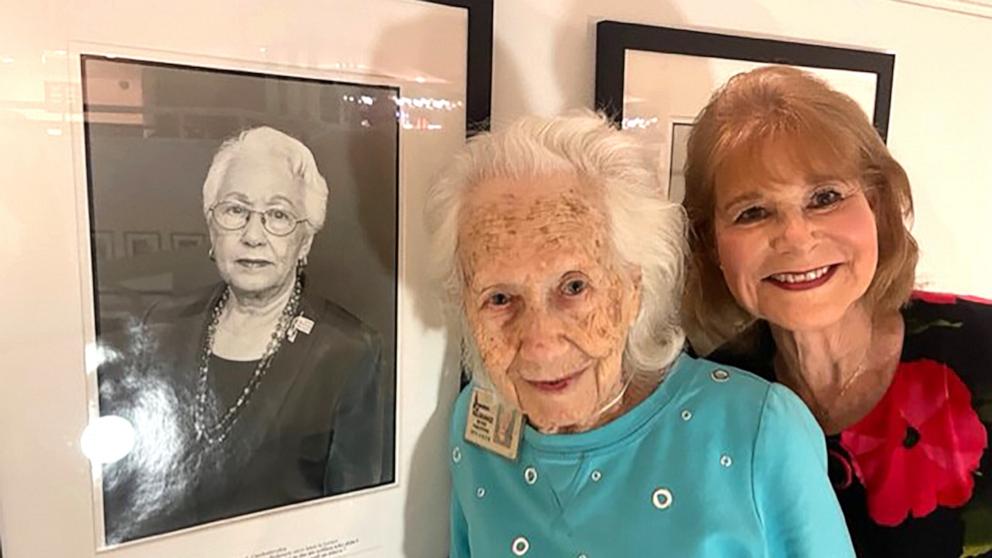
Renée Firestone, a 99-year-old Holocaust survivor, moved to the United States in 1948 in search of a new life.
After living through the horrors of Auschwitz, where several of her family members were killed, she said she looked to the United States as a beacon of hope, a land where she could escape the antisemitism that had taken so much from her.
But late last month, an antisemitic message was sprayed on the back of her apartment building in Beverly Hills, California, Klara Firestone, Renée's daughter who also lives in the building, told ABC News.
"I was delighted that we are going to America because it can never happen again [there]," Renée Firestone told ABC News. "Now, I see that it can happen."
The Beverly Hills Police Department confirmed to ABC News two incidents of vandalism depicting hate speech on the same day within blocks of each other, and said both incidents are being investigated as hate crimes.
"The suspect(s) in both cases appear to be related based on verbiage, style and color of the spray paint," the BHPD said.
Antisemitism has long been an issue in the U.S., but experts say the ongoing war in the Middle East between Israel and the terrorist group Hamas appears to have incited a new wave of threats against Jewish communities in the United States.
Firestone said seeing the vandalism brought back feelings from the Holocaust.
"You are wondering why? What did I do to you? Why are you so angry and hate me so much? I just can't understand, and it's scary," Firestone said.
MORE: Remembering the HolocaustIn 2022, before the current Israel-Hamas war, the FBI said it tracked 1,124 reported hate crimes directed at Jewish people or institutions in the U.S. That is the highest number of anti-Jewish crimes since 1993, according to FBI data.
And since Oct. 7, when terrorist group Hamas launched its surprise attack on Israel, the Anti-Defamation League Center on Extremism said it found a 388% year-over-year increase in reported antisemitic incidents across the U.S.
In the days leading up to the incident at the apartment, Klara Firestone said she had become aware of the rise in antisemitism nationwide.
"I'm thinking to myself, wow, that is really terrible. And how could someone do that? And, thank God, it's not me. You know, it's always thank God, it's not me. And the next day, it's me," she said.
Experts and federal security agencies have been warning about the impact of antisemitism and extremism in the U.S. for years. Experts and law enforcement say the ongoing war in the Middle East between Israel and Hamas appears to have incited a new wave of threats against Jewish communities in the U.S., although the connection, if any, to the incident at Firestone's home is unclear.
"We know invariably when tensions flare in other parts of the world, the reverberations are felt everywhere, including in our homes and our communities," Melanie Pell, chief field operations officer of the American Jewish Committee, previously told ABC News. "So we're really bracing for a very vulnerable time and thankfully, law enforcement is paying very close attention and is in constant coordination and collaboration with the Jewish community."
Renée Firestone said incidents like the one at her home conjure up memories and feelings of fear first cemented during the Holocaust.
"You cannot imagine," she said. "Any memory of what I went through is very scary."
ABC News' Kiara Alfonseca contributed to this report.